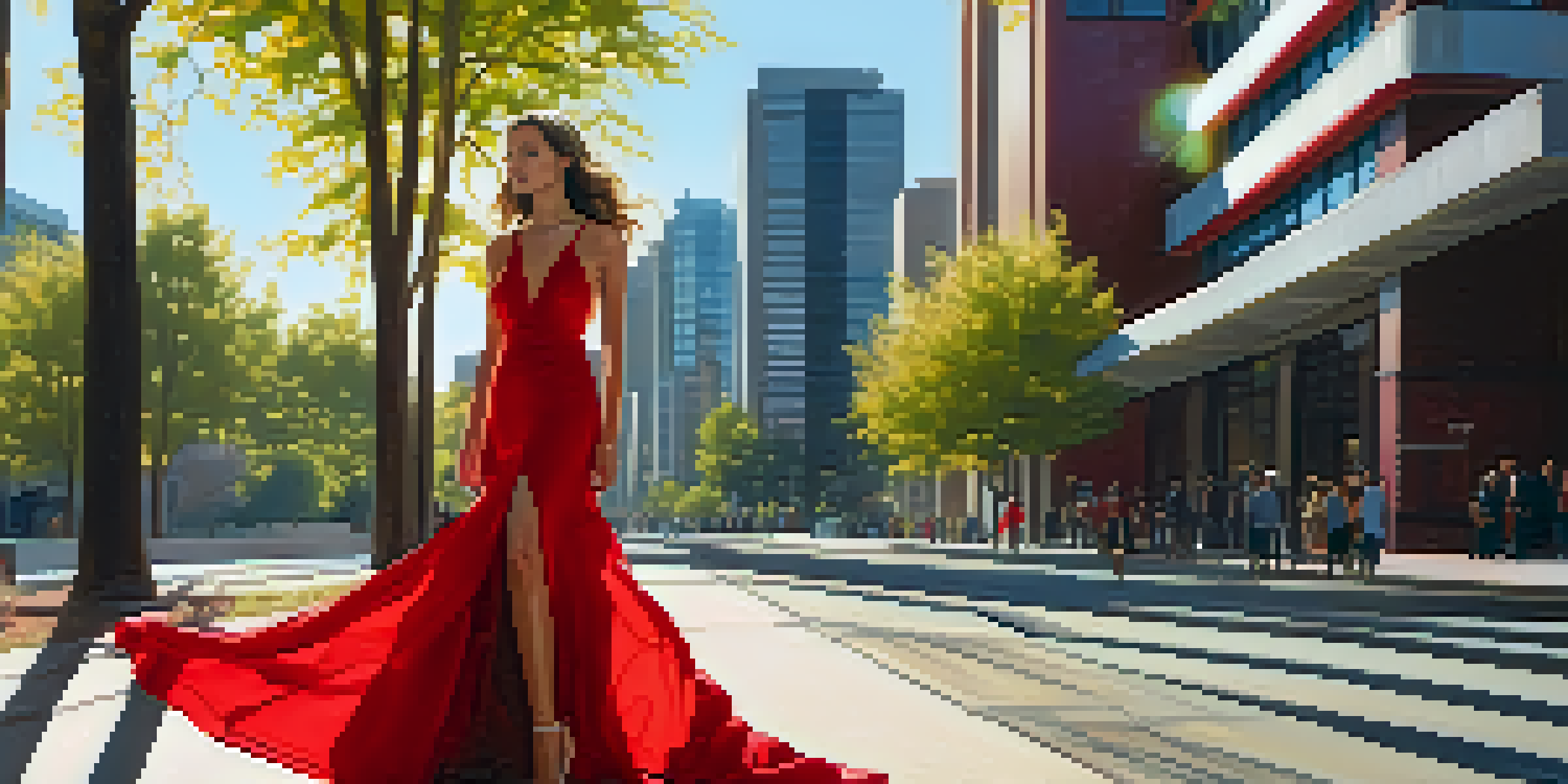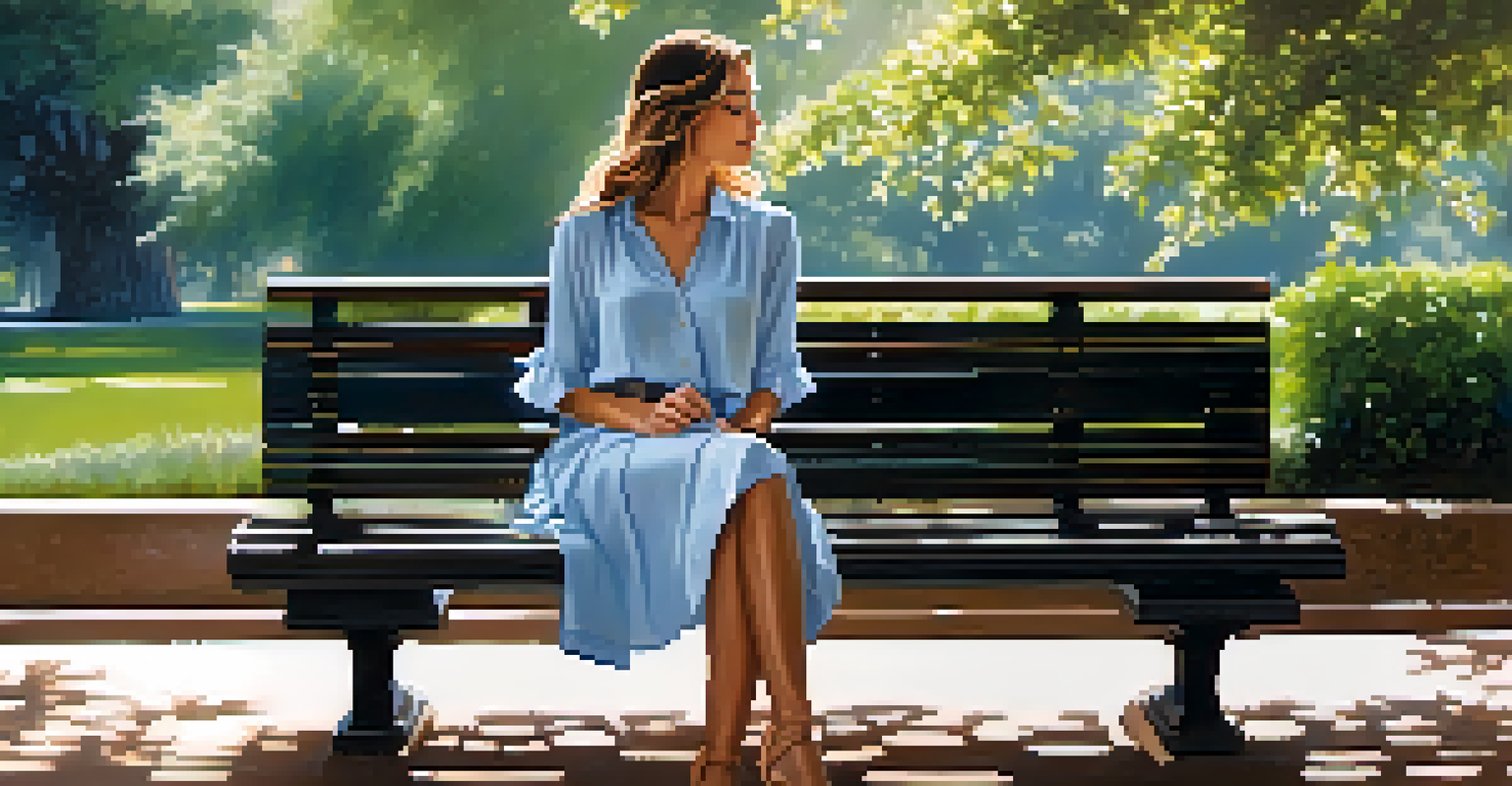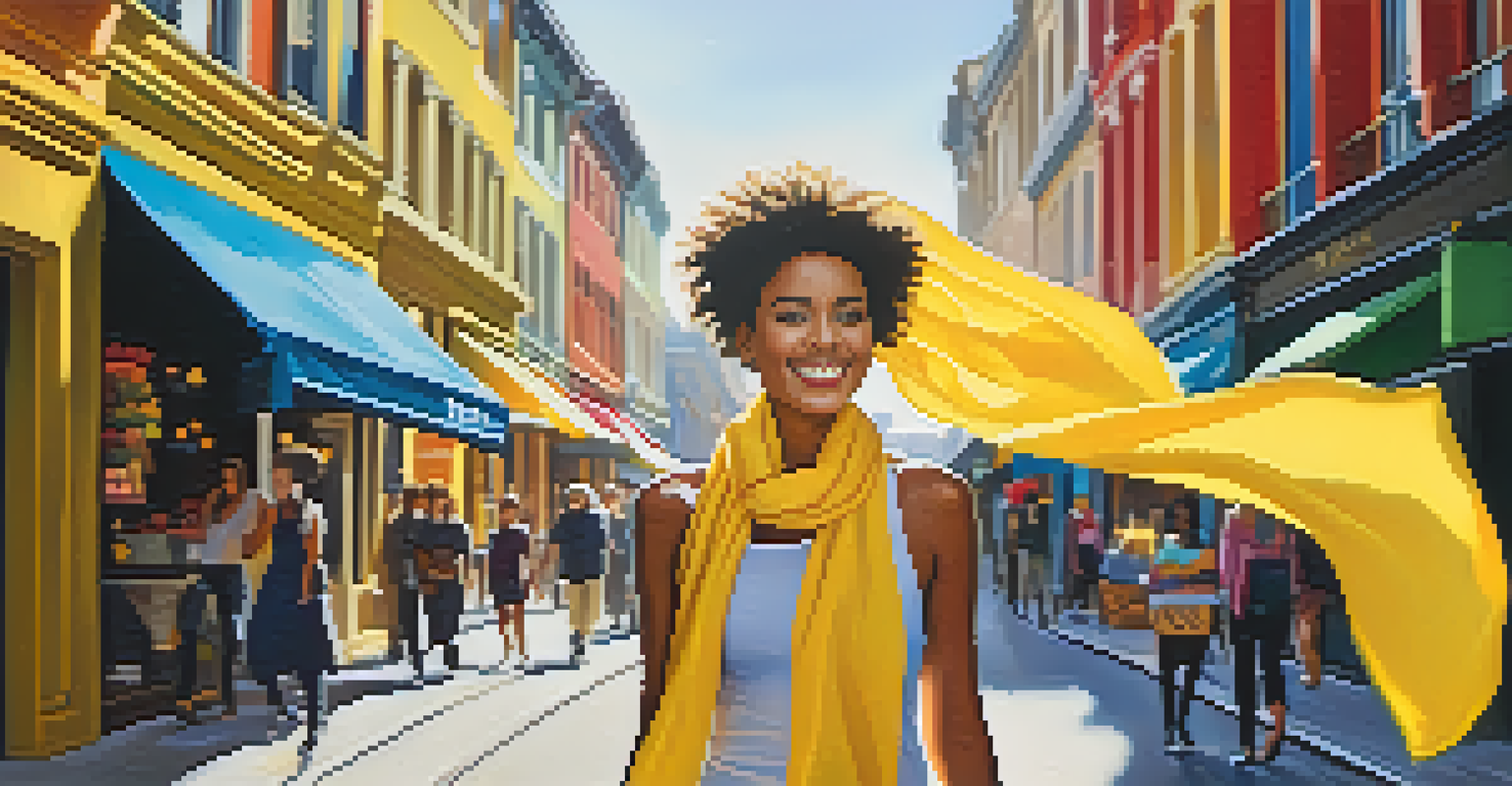Color Psychology: How Fashion Choices Influence Your Mood

Understanding Color Psychology in Fashion
Color psychology is the study of how colors affect our emotions and behaviors. In fashion, this means that the colors we wear can significantly influence our mood and how others perceive us. For example, wearing bright colors like yellow can evoke feelings of happiness and energy, while darker shades might convey seriousness or sadness.
Colors, like features, follow the changes of the emotions.
Different colors can trigger various emotional responses in people, making it essential to understand their impact. When choosing an outfit, consider the message you want to send to the world around you. The right color can boost your confidence and help you express your personality more vividly.
Fashion is not just about style; it's a form of self-expression. By being mindful of the colors you choose, you can better manage your mood and even influence those around you. So, let's dive deeper into how specific colors can shape your emotional landscape.
Red: The Color of Passion and Energy
Red is often associated with strong emotions, including love, passion, and even aggression. When you wear red, you may feel a surge of energy and confidence, making it a popular choice for special occasions or important meetings. Red can grab attention, so it's ideal for those days when you need to make a statement.

This vibrant color can elevate your mood and encourage bold actions. Imagine walking into a room wearing a stunning red dress or a sharp red blazer; the energy in the room can shift. People may perceive you as more dynamic and assertive, which can be empowering.
Colors Influence Emotions
The colors we wear can significantly impact our mood and how others perceive us.
However, it's essential to balance red with other colors to avoid overwhelming your look. Pairing red with softer shades, like white or beige, can create an elegant contrast while still allowing you to harness its energetic effects.
Blue: A Calming and Trustworthy Choice
Blue is often linked to feelings of calmness and stability. Wearing blue can help reduce anxiety and create a sense of tranquility, making it a perfect choice for everyday wear or professional settings. Many people associate blue with trustworthiness, which is why it's a popular color in corporate environments.
The purest and most thoughtful minds are those which love color the most.
When you dress in blue, you may find yourself feeling more relaxed and composed. It's like wrapping yourself in a cozy blanket on a chilly day. This color can help you navigate stressful situations with grace and poise.
Additionally, blue pairs well with many other colors, making it versatile for various styles and occasions. Whether it's a navy suit for work or a light blue top for a casual outing, incorporating blue into your wardrobe can influence your mood positively.
Yellow: The Color of Optimism and Cheerfulness
Yellow is often seen as the color of sunshine, symbolizing happiness and optimism. Wearing yellow can instantly uplift your mood and brighten your day, making it a fantastic choice for casual outings or social events. It's like wearing a smile that radiates positivity to those around you.
However, too much yellow can be overwhelming, so it's best to use it in moderation or pair it with more subdued colors. Think of a cheerful yellow scarf or accessory to add a splash of joy to your outfit. This approach allows you to enjoy the uplifting effects of yellow without feeling overstimulated.
Mindful Color Choices Matter
Being aware of the psychological effects of colors allows you to curate a wardrobe that enhances self-expression and well-being.
Incorporating yellow into your wardrobe can also encourage a more optimistic outlook on life. When you look good in bright colors, you tend to feel good, leading to a more positive mindset throughout the day.
Green: Symbolizing Balance and Harmony
Green is often associated with nature, symbolizing growth, balance, and harmony. Wearing green can promote a sense of peace and rejuvenation, making it an ideal color for those seeking to connect with their environment. It's like a breath of fresh air, reminding you of the tranquility found in nature.
This versatile color can also evoke feelings of renewal and hope, making it perfect for springtime outfits. Whether it's a soft pastel green or a deep emerald, incorporating green into your wardrobe can help ground you and enhance your mood.
Green pairs beautifully with many other colors, allowing for creative combinations that express your individuality. By choosing green, you not only embrace its calming effects but also show your appreciation for nature and life.
Black: The Color of Sophistication and Power
Black is often seen as a color of sophistication and power. Wearing black can evoke feelings of confidence and authority, making it a go-to choice for formal occasions or professional environments. It's like slipping into a suit of armor that empowers you to tackle challenges head-on.
While black is a classic and timeless option, it's essential to balance it with other colors to avoid feeling too heavy or gloomy. Pairing black with vibrant accessories or lighter shades can create an interesting contrast while maintaining that sense of elegance.
Balance Colors for Impact
Pairing vibrant colors with softer shades can create a striking look while maintaining elegance.
Embracing black in your wardrobe allows you to make a bold statement effortlessly. Whether it's a little black dress or tailored black pants, this color can help you feel poised and ready to conquer the world.
White: Purity and Freshness in Your Wardrobe
White is often associated with purity, simplicity, and freshness. Wearing white can create a sense of clarity and openness, making it an excellent choice for warm, sunny days. It's like a blank canvas, allowing your personality to shine through without overwhelming distractions.
This color can also evoke feelings of peace and calm, making it ideal for casual outings or relaxed environments. When you wear white, you may find yourself feeling more at ease and ready to embrace new experiences.

Additionally, white pairs beautifully with almost any other color, making it a versatile staple in any wardrobe. By incorporating white into your outfits, you can maintain a fresh and clean aesthetic that complements your overall style.
Choosing Colors Mindfully for Your Well-Being
Being mindful of the colors you choose can significantly impact your mood and overall well-being. By understanding the psychological effects of different colors, you can curate a wardrobe that aligns with your emotions and enhances your self-expression. It's about finding the right balance that resonates with who you are.
Experimenting with color can be fun and empowering. Take note of how certain colors make you feel and consider incorporating more of those shades into your outfits. Don't hesitate to mix and match—fashion is about creativity, and finding your unique style is part of the journey.
Ultimately, your wardrobe should reflect your personality and help you feel your best. By choosing colors that uplift and inspire you, you can navigate your day with confidence and positivity, making fashion a powerful tool for emotional well-being.